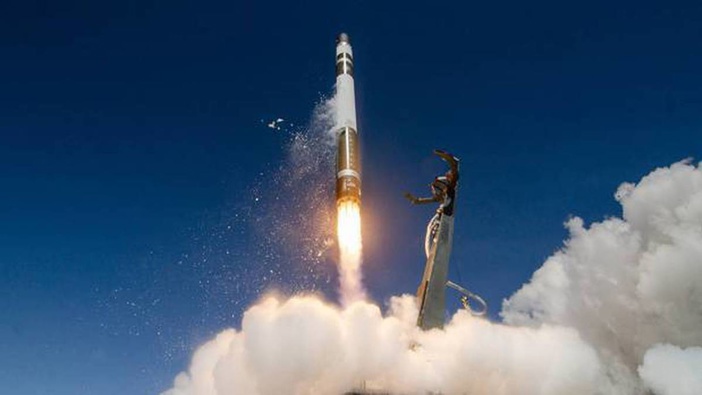Rocket Lab's next launch will carry another military payload, and see further refinement of the 'Photon' platform that will help ferry a NASA satellite to the moon later this year.
The payload for the "They Go Up So Fast" mission scheduled for a mid-March launch from Mahia, will include, a "technology demonstrator for the US Army's Space and Missile Defense Command (SMDC) through launch integration and program management services provider, TriSept," Rocket Lab said in a statement (see full manifest foot of story).
It will be the latest in a string of defence launches for the US government. Rocket Lab received funding from the US Department of Defense via its DARPA (Defense Advanced Research Projects Agency) unit, and carried payloads to space for spook outfit the National Reconnaissance Office and the US Air Force (the latter will also be the first client for Rocket Lab's new launch pad in Virginia, due to come into service later this year).
Rocket Lab founder and chief executive Peter Beck earlier told the Herald that his company only carries research, not operational satellites, for military clients. Beck also said that many of the technologies involved were dual-use. He pointed to GPS as a US military satellite technology that had ultimately crossed over into the popular domain as a public good. The internet also grew out of a US military research project.
Additionally, every Rocket Lab payload must now be signed off by the New Zealand Space Agency (housed within) MBIE, plus the Space Minister (currently Stuart Nash), after meeting safety criteria and passing a "national interest" test.
However, the Green Party is not happy with the move. Security and Intelligence spokesperson Teanau Tuiono told Heather du Plessis-Allan they don't think New Zealand should be a launching pad for international satellites
"There were national interest guidelines released in 2017, and in those guidelines they were meant to rule out halos that contribute to nuclear weapons programmes or capabilities."
'Space Tug'
They Go Up So Fast's six customer payloads will be integrated onto Photon, which will initially act as a Kick Stage "space tug" to circularise and deploy the satellites to precise orbits, Rocket Lab says.
After deploying the first five satellites to a 550 km circular orbit, Photon's Curie engine will reignite to lower its attitude and deploy the final satellite to a 450 km orbit.
Following payload deployment, Photon Pathstone will remain in orbit "to build flight heritage" across the spacecraft's subsystems ahead of the Capstone mission to the Moon for NASA later this year, as well as Rocket Lab's private mission to Venus in 2023 (a passion project being pursued by Beck following the discovery of phosphine gas in the planet's atmosphere - an indicator of possible life. On Earth, phosphine is only produced through biochemical processes).
Photon Pathstone will demonstrate power management, thermal control, and attitude control subsystems, as well as newly-integrated technologies including deep-space radio capability, an upgraded RCS (reaction control system) for precision pointing in space, and sun sensors and star trackers. Pathstone is the second Photon spacecraft to be deployed to orbit, following the launch of Photon First Light in August 2020, Rocket Lab says.
One launch, mulitple missions
Beck says deploying customer satellites and then continuing with an independent Photon mission is a unique capability that enables multiple missions on the same launch.
"We're delighted to be delivering tailored access to orbit for our customers once again, many of whom have previously launched on Electron. With Photon, and likewise with the Kick Stage, we're able to give our customers an unmatched level of control over their orbital insertion, even when flying as a rideshare," he said.
"What's truly unique to Electron is the ability to deploy a range of customer satellites, then continue with a separate Photon mission. It means making multiple, distinct missions capable within the same launch, reducing the time, cost, and complexity of innovating on orbit. It's nothing short of a complete transformation in the way we go to space."
text by Chris Keall, NZ Herald
Take your Radio, Podcasts and Music with you










